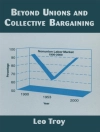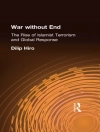Studies of the Israeli-Palestinian conflict typically focus on how international conditions drive the likelihood of conflict resolution. By contrast, Democracy and Conflict Resolution considers the understudied impact of domestic factors. Using the contested theory of ‘democratic peace’ as a foundational framework, the contributors explore the effects of various internal influences on Israeli government practices related to peace-making: electoral systems, political parties, identity, leadership, and social movements. Most strikingly, Democracy and Conflict Resolution explores the possibility that features of democracy inhibit resolution of conflict, a possibility that resonates far outside the contested region. In reflecting on how domestic political configurations matter in a practical sense, this book offers policy-relevant and timely suggestions for advancing Israel’s capacity to pursue effective peacemaking policies.
Giới thiệu về tác giả
Miriam Fendius Elman is associate professor of political science at the Maxwell School of Citizenship and Public Affairs, Syracuse University. Oded Haklai is associate professor of political studies at Queen’s University, Kingston.Hendrik Spruyt is Norman Dwight Harris Professor of International Relations and former director of the Buffett Center for International and Comparative Studies at Northwestern University.












